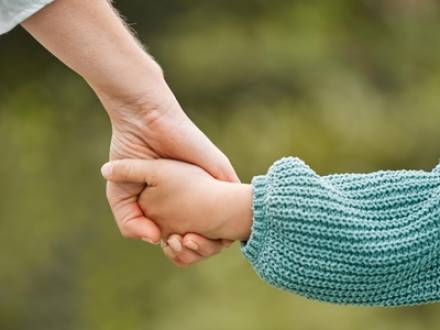 630-393-3111
630-393-3111
4200 Cantera Drive, Suite 200 | Warrenville, IL 60555
Recent Blog Posts
What Are the Penalties for Withholding Visitation in Illinois?
 Parents who defy a court-ordered parenting time agreement and refuse to let the other parent see their child can face serious consequences under Illinois law. Withholding visitation, known as parenting time in Illinois, does not just strain family relationships. It can result in legal penalties that affect a parent’s rights. Understanding these penalties is important for any parent navigating custody disputes. A Naperville, IL child custody attorney can help you protect your parenting time and explain your rights.
Parents who defy a court-ordered parenting time agreement and refuse to let the other parent see their child can face serious consequences under Illinois law. Withholding visitation, known as parenting time in Illinois, does not just strain family relationships. It can result in legal penalties that affect a parent’s rights. Understanding these penalties is important for any parent navigating custody disputes. A Naperville, IL child custody attorney can help you protect your parenting time and explain your rights.
Is It a Crime To Deny Parenting Time in Illinois?
Section 607.5 of the Illinois Marriage and Dissolution of Marriage Act addresses the abuse of parenting time. According to this law, a parent cannot intentionally interfere with the other parent’s court-ordered parenting time. If your co-parent refuses to let you see your child, they could be found in contempt of court.
How Do Postnuptial Agreements Work in Illinois?
 Handling financial matters during marriage can be complex. Couples often seek ways to protect their assets and plan for the future. A Naperville, IL postnuptial agreement lawyer can help you understand how a postnuptial agreement, also known as a postnup, works under Illinois law. Signing a postnup does not indicate that you think your marriage will fail. It is just a contract between two financially responsible adults.
Handling financial matters during marriage can be complex. Couples often seek ways to protect their assets and plan for the future. A Naperville, IL postnuptial agreement lawyer can help you understand how a postnuptial agreement, also known as a postnup, works under Illinois law. Signing a postnup does not indicate that you think your marriage will fail. It is just a contract between two financially responsible adults.
What Conditions Can Be Included in a Postnuptial Agreement in Illinois?
Like a prenuptial agreement, a postnuptial agreement defines how property and maintenance are handled during divorce. The primary difference is that you sign a prenup before marriage and a postnup when you are already married. Section 750 ILCS 5/503 of the Illinois Marriage and Dissolution of Marriage Act states that marital property is divided fairly, not always equally, in divorce. However, prenups and postnups allow you to have more control over the process.
What Is the Difference Between Custody and Guardianship in Illinois?
 Custody and guardianship are two distinct paths to caring for a minor child. However, someone can have guardianship over an adult as well. These terms are sometimes confused, but they serve different purposes and follow different legal procedures in Illinois. If you are seeking clarity, a Naperville, IL guardianship attorney can guide you through which legal option best serves the child’s needs and your role in their life.
Custody and guardianship are two distinct paths to caring for a minor child. However, someone can have guardianship over an adult as well. These terms are sometimes confused, but they serve different purposes and follow different legal procedures in Illinois. If you are seeking clarity, a Naperville, IL guardianship attorney can guide you through which legal option best serves the child’s needs and your role in their life.
How Does Illinois Law Define "Parental Responsibilities"?
In Illinois, the term "custody" has been replaced with "parental responsibilities" under statute 750 ILCS 5/600. The law focuses on two areas: decision-making authority and parenting time.
What Happens to International Assets During an Illinois Divorce?
 Under Illinois law, international property acquired during marriage is not exempt from division during divorce proceedings. However, navigating the division of assets is more complex for couples with businesses, real property holdings, and retirement savings overseas. Issues can arise in practical enforcement, and cooperation with foreign legal systems is required. A Naperville, IL high net worth divorce attorney with experience in cases involving international asset division can help address these challenges to protect your right to a fair divorce decree.
Under Illinois law, international property acquired during marriage is not exempt from division during divorce proceedings. However, navigating the division of assets is more complex for couples with businesses, real property holdings, and retirement savings overseas. Issues can arise in practical enforcement, and cooperation with foreign legal systems is required. A Naperville, IL high net worth divorce attorney with experience in cases involving international asset division can help address these challenges to protect your right to a fair divorce decree.
How Does Illinois Law Handle Property Division?
Illinois statute 750 ILCS 5/503 from the Illinois Marriage and Dissolution of Marriage Act addresses the disposition of property and debts during divorce proceedings. Provision 5/503(a) defines marital property as all assets and debts acquired during the marriage by either spouse. Exceptions include:
How Long Will I Have To Pay Spousal Maintenance in Illinois?
 In Illinois, the duration of spousal maintenance, also known as alimony, depends on how long you were married. The court also typically uses a standardized calculation method to determine exactly how much the payments will be. However, spousal maintenance orders are not set in stone. Under certain conditions, they can be modified or terminated. If you have questions about the duration or amount of alimony in your case – whether you are thinking of divorce or already have a final decree – a knowledgeable Naperville, IL spousal maintenance lawyer can help.
In Illinois, the duration of spousal maintenance, also known as alimony, depends on how long you were married. The court also typically uses a standardized calculation method to determine exactly how much the payments will be. However, spousal maintenance orders are not set in stone. Under certain conditions, they can be modified or terminated. If you have questions about the duration or amount of alimony in your case – whether you are thinking of divorce or already have a final decree – a knowledgeable Naperville, IL spousal maintenance lawyer can help.
How Does the Duration of Your Marriage Impact Alimony in Illinois?
To determine how long you will need to pay spousal maintenance in Illinois, you take the number of years you were married and multiply that by a percentage associated with that timeframe. For example, if you were married for less than five years, the duration of support will be 20 percent of five years, equaling one year of alimony.
What Does It Mean to Freeze Assets During an Illinois Divorce?
 For most people, approaching the asset division element of an Illinois divorce can be the most nerve-wracking part of the process. Often, couples disagree on how property should be categorized – marital or separate – and then further disputes arise when deciding how to divide assets and liabilities. If you are concerned that your spouse may endanger your shared property by hiding, abusing, or wasting it, you need to know more about freezing assets. An experienced DuPage County asset division attorney will walk you through the process and help you protect your right to a fair divorce settlement.
For most people, approaching the asset division element of an Illinois divorce can be the most nerve-wracking part of the process. Often, couples disagree on how property should be categorized – marital or separate – and then further disputes arise when deciding how to divide assets and liabilities. If you are concerned that your spouse may endanger your shared property by hiding, abusing, or wasting it, you need to know more about freezing assets. An experienced DuPage County asset division attorney will walk you through the process and help you protect your right to a fair divorce settlement.
Does Illinois Have an Automatic Financial Stay for Divorce Cases?
In some states, filing for divorce initiates an automatic financial stay, freezing assets and preventing both spouses from hiding, removing, or wasting them. However, that is not the case in Illinois. If you believe marital assets need protection during divorce proceedings, you need to request a financial restraining order to freeze them. The court will then conduct an assessment of the spouse’s actions or threats of action to determine whether the restraining order is necessary.
Supporting Your Adult Child in Their Divorce
 Divorce rates among people over age 50 have more than doubled since the 1990s and many of these breakups involve adult children with families, careers, and long histories of shared financial responsibility. If your son or daughter is going through a divorce in Naperville or elsewhere in DuPage County, you may be wondering how to help without overstepping. While the process is different than it would be for a younger couple, it is no less emotionally complex.
Divorce rates among people over age 50 have more than doubled since the 1990s and many of these breakups involve adult children with families, careers, and long histories of shared financial responsibility. If your son or daughter is going through a divorce in Naperville or elsewhere in DuPage County, you may be wondering how to help without overstepping. While the process is different than it would be for a younger couple, it is no less emotionally complex.
As of May 2025, Illinois divorce law continues to apply the same statutes regardless of age, but the way families navigate divorces for adult children often requires a different kind of support — one rooted in respect, patience, and guidance rather than intervention. Read some tips from our Illinois divorce lawyer about supporting an adult child through their divorce. If your child has young children of their own, you can read more about the basics of child custody in Illinois.
What Does Divorce Mediation Look Like?
 You have probably heard that divorce mediation is cheaper, faster, and less stressful than courtroom divorce. That is sometimes true. But what you may not have heard is that mediation is still a process that is emotionally raw, legally complex, and full of hard compromises.
You have probably heard that divorce mediation is cheaper, faster, and less stressful than courtroom divorce. That is sometimes true. But what you may not have heard is that mediation is still a process that is emotionally raw, legally complex, and full of hard compromises.
In Illinois, mediation is not just an alternative to courtroom litigation. It is often a required step, especially when child custody is involved. If you are getting divorced in Illinois, you should expect to go through it. The question is not whether you will attend mediation, but how to make it work. At Calabrese Associates, P.C., our DuPage County, IL divorce mediation attorney can make the process of mediation approachable.
What It’s Like Inside the Divorce Mediation Room
Divorce mediation is a structured process in which a neutral third party — the mediator — helps you and your spouse negotiate an agreement. The mediator is not a judge and will not decide your case. Rather, the mediator’s role is to facilitate conversation, clarify points of conflict, and guide you toward resolution.
What Can I Do if My Ex Does Not Follow Our Illinois Divorce Decree?
 A court-ordered divorce decree can include judgments about property division, spousal support, allocation of parental responsibilities, and child support. When an ex-spouse does not follow the obligations laid out in the divorce decree, you may need legal assistance in the form of an enforcement of the judgment. If you are struggling with an uncooperative ex, you do not have to face the challenge alone – a Naperville, IL enforcement of judgments attorney can help.
A court-ordered divorce decree can include judgments about property division, spousal support, allocation of parental responsibilities, and child support. When an ex-spouse does not follow the obligations laid out in the divorce decree, you may need legal assistance in the form of an enforcement of the judgment. If you are struggling with an uncooperative ex, you do not have to face the challenge alone – a Naperville, IL enforcement of judgments attorney can help.
Steps You Can Take if Your Ex-Spouse Does Not Follow the Divorce Decree
When your ex-spouse does not fulfill their post-divorce obligations, you have to take action to ensure that your needs are met. Consider some steps you can take before filing a motion for the court to enforce the decree:
-
Violation determination: Keep records of exactly which elements of the divorce decree your ex has failed to uphold. For example, have they skipped alimony payments or ignored the parenting plan?
Understanding Marital vs. Non-Marital Property in an Illinois Divorce
 The divorce process is different for every couple because it is extremely personal. Many elements impact what your divorce looks like, including whether you have children and how many assets you have separately and together. To understand the division of assets, you first need to know how Illinois law differentiates between separate, also known as non-marital, and marital property. A DuPage County, IL asset division attorney can help you navigate the process, which is especially useful if you have a complex portfolio.
The divorce process is different for every couple because it is extremely personal. Many elements impact what your divorce looks like, including whether you have children and how many assets you have separately and together. To understand the division of assets, you first need to know how Illinois law differentiates between separate, also known as non-marital, and marital property. A DuPage County, IL asset division attorney can help you navigate the process, which is especially useful if you have a complex portfolio.
How Does Illinois Law Define Marital Property?
The Illinois Marriage and Dissolution of Marriage Act addresses the characterization of marital and non-marital property. In general, everything you acquire together as a married couple would be marital property. This includes income, assets, and debts. As an equitable distribution state, these assets will be divided based on consideration of certain factors, including your contributions to the property. Common examples of marital property include bank accounts, real estate, and vehicles.


 4200 Cantera Drive, Suite 200, Warrenville, IL 60555
4200 Cantera Drive, Suite 200, Warrenville, IL 60555 630-393-3111
630-393-3111





